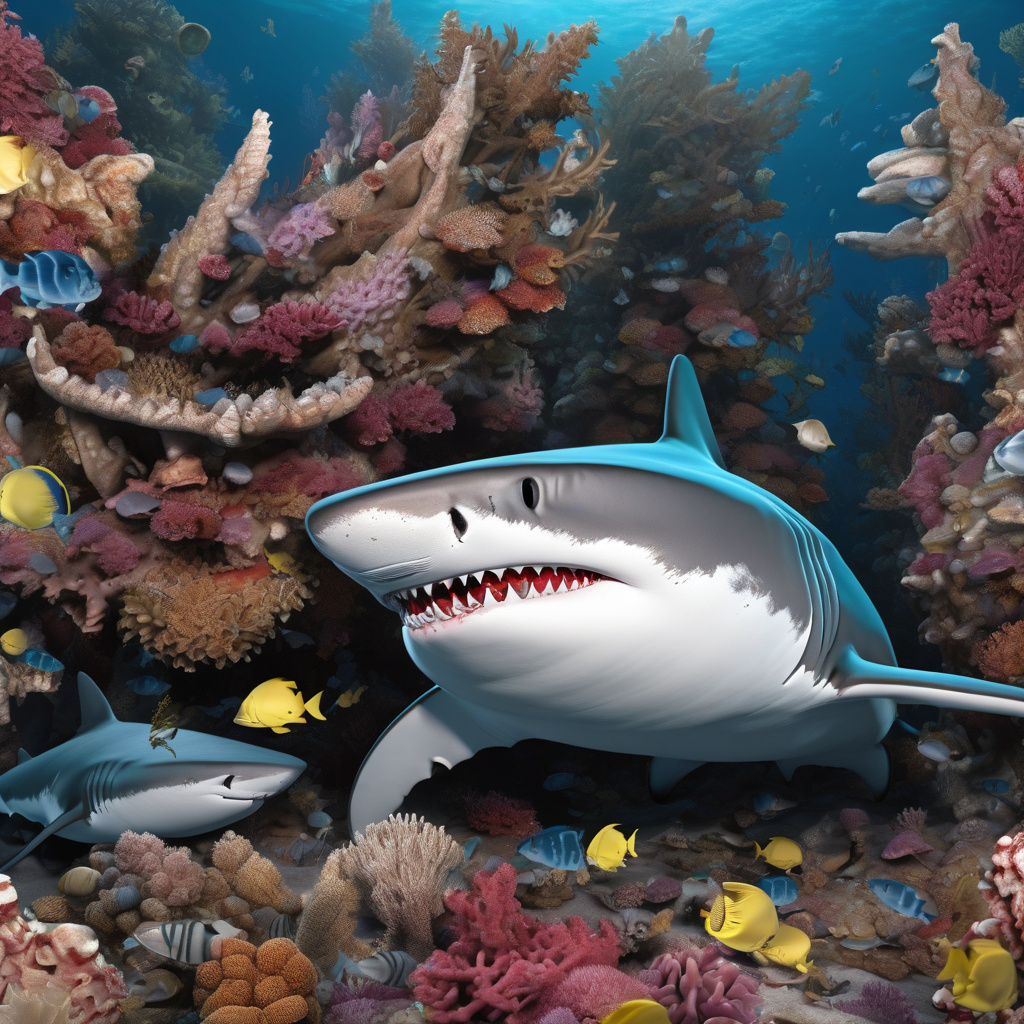Sharks in Peril: How Ocean Acidification is Jeopardizing Their Predatory Edge
Sharks are excellent at catching prey thanks to their unique ability to continually shed and replace their teeth. These formidable predators rely on their razor-sharp teeth to hunt, feed, and ultimately survive in the harsh ocean environment. However, their most crucial weapon is now under threat due to the alarming rise of ocean acidification.
Ocean acidification, primarily caused by the increasing levels of carbon dioxide in the atmosphere, poses a significant risk to marine life, including sharks. As the oceans absorb more carbon dioxide, they become more acidic, leading to a cascade of detrimental effects on marine ecosystems. One of the most concerning impacts is the degradation of sharks’ teeth and their ability to hunt effectively.
The acidic conditions in the ocean can erode the enamel-like material covering sharks’ teeth, making them weaker and more prone to damage. Weakening of their teeth not only hinders sharks’ ability to catch prey but also affects their overall health and survival. With their primary hunting tool compromised, sharks face a daunting challenge in maintaining their position as top predators in the marine food chain.
Moreover, the repercussions of ocean acidification extend beyond just the physical structure of sharks’ teeth. The chemical changes in the ocean can disrupt the sensory systems of sharks, including their ability to detect prey through smell and electrical signals. This further impairs their hunting prowess and puts additional pressure on their already vulnerable populations.
Conservation efforts aimed at protecting sharks have become more critical than ever in the face of ocean acidification. By implementing strategies to reduce carbon emissions and mitigate the effects of climate change, we can help safeguard the future of these iconic marine creatures. Additionally, research into alternative materials that can enhance the durability of sharks’ teeth in acidic environments may offer a glimmer of hope for their survival.
As we confront the sobering reality of how ocean acidification is threatening sharks’ most crucial weapon, it is essential to recognize the interconnectedness of all life in the oceans. Preserving the delicate balance of marine ecosystems is not just a matter of protecting one species but ensuring the health and stability of the entire underwater world. The time to act is now before we lose not only the sharks’ predatory edge but also a vital piece of the ocean’s intricate puzzle.
In conclusion, the looming specter of ocean acidification poses a significant threat to sharks and their ability to thrive in their natural habitat. By understanding the implications of this environmental challenge and taking proactive steps to address it, we can help safeguard the future of these magnificent creatures and the marine ecosystems they inhabit.
oceanacidification, sharks, marineecosystems, conservation, climatechange












